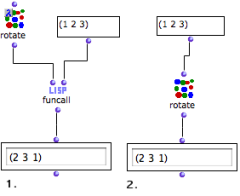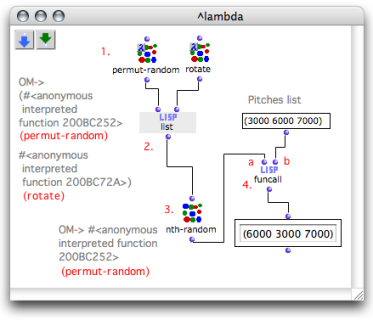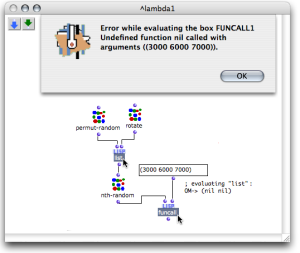Lambda Mode Examples: Funcall - Using Functions as Data
Functional arguments are variables of higher-order functions and programs. Here is a way of applying higher-order programs and lambda mode in OM.
It can sometimes be necessary to leave the choice of a function in a program. The call of the function, which is passed as data in the program is then delayed.
Funcall has two types of arguments :
its first argument is a function
its other arguments are additional - "rest" - arguments).
Funcall calls the function taking these additional arguments as parameters.
 | Rotate performs circular permutations upon a list : items are enumerated starting from the second element. In this example, rotate is applied to a simple list of numbers : (1 2 3).
The result of the computation is similar in both cases. We will however extend it to show how using a function as an actual variable . |
Using lambda functions allows to choose between several functions, as if they were plain data.
We will modify a list of numbers with one of these two functions : permut-random or rotate.
Permut-random makes a random permutation of the elements of a list.
Rotate makes a circular permutation of the elements in the list (see previous example).
The function will be selected randomly, so that is becomes a random variable.

To use permut-random and rotate as variables, we have set them on "lambda" mode.
List makes a list with these two functions.
Nth-random picks one of the two functions in this list randomly.
Funcall applies the selected function to its second argument, the list of numbers.

